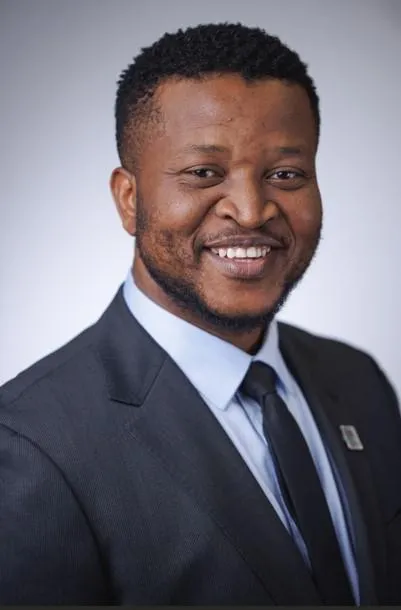
A board that only listens risks passivity; one that only speaks risks arrogance. Wisdom lives in the tension between the two, in the leader who knows when silence protects integrity and when words must defend it, says the author.
Image: Freepik
In governance, wisdom is often mistaken for eloquence. Yet some of the most powerful moments in leadership are not found in what is said, but in what is withheld. The ability to listen deeply, to discern before speaking, and to know when silence carries more weight than words lies at the heart of ethical stewardship.
The modern boardroom is filled with voices. Strategies are debated, reports are read, and opinions are shared with conviction. But beneath the noise of activity, there is often a missing rhythm: the stillness of reflection. Where many believe that strength in leadership is found in constant articulation, I suggest that it is rather found in the balance between expression and understanding. Wisdom is not in the loudest voice, but in the truest one.
Knowing when to speak and when to listen is a form of governance discipline. It is about timing, tone and intent. To listen is to honour context; to speak is to shape it. One without the other becomes imbalance: silence that avoids responsibility or speech that overpowers reason. The measure of wisdom lies in the harmony between both.
Listening is the beginning of leadership, not the end of it. When leaders listen, they allow complexity to surface. They invite insight from those closest to the issues and create a culture where truth can be spoken without fear. In doing so, they lead from awareness rather than assumption. Listening, then, is not passive, but a necessary groundwork of discernment.
Dr Reuel Khoza, in his philosophy of Attuned Leadership, describes listening as the art of attunement: being finely tuned to people, purpose and principle. He teaches that effective leaders do not rush to command; they seek first to understand. They listen to what is said and to what remains unspoken, recognising that empathy precedes wisdom. In his Ubuntu-inspired view, authority draws legitimacy from moral resonance, not volume. When boards adopt this posture, they move from reaction to reflection, allowing decisions to be informed by understanding rather than impulse.
Khoza’s idea of attunement captures a truth often lost in the fast pace of modern governance: that listening creates legitimacy. It builds the relational capital upon which difficult decisions can rest. A board that listens first governs with greater moral clarity. Its words, when finally spoken, carry weight because they rise from a foundation of comprehension and care.
Yet leadership does not end with listening. There are moments when silence becomes complicity, when the ethical call is not to hear but to speak. This is where courage takes its turn in the cycle of wisdom.
Professor Bonang Mohale, through his principle of Lift As You Rise, reminds us that those entrusted with power must use their voice in service of others. He calls leadership a privilege to improve lives, not a platform for self-interest; a trap that is all too common. His challenge to leaders is simple but profound: prosperity without purpose is hollow. In this sense, speaking is not self-assertion but stewardship. To speak with conscience is to give voice to values when it is costly to do so, even at a personal cost.
Mohale’s philosophy complements Khoza’s. Where Khoza teaches the discipline of listening, Mohale teaches the duty of expression. Both are necessary. A board that only listens risks passivity; one that only speaks risks arrogance. Wisdom lives in the tension between the two, in the leader who knows when silence protects integrity and when words must defend it.
This is a skilful balance that demands both humility and the conscious setting aside of arrogance.
In practice, this balance transforms governance. The chair who listens before concluding, who senses the energy in the room before deciding when to interject, exercises attuned leadership. The director who speaks up when ethics are at stake, even when it disrupts consensus, embodies courageous stewardship. Together they form a board culture that is reflective yet resolute, humble yet principled.
King IV echoes this philosophy. Principle 2 reminds governing bodies to lead ethically and effectively, balancing fairness, accountability and transparency. Ethical leadership, it says, demands both discernment and courage. Listening ensures fairness; speaking ensures accountability. The two together sustain trust.
We see this duality reflected in the legacies of Khoza and Mohale themselves. Khoza’s quiet conviction shaped corporate South Africa’s moral imagination, encouraging leaders to govern with empathy and cultural awareness. Mohale’s outspoken integrity continues to challenge leaders to align profit with purpose and voice with virtue. Both demonstrate that African leadership philosophy has much to offer the world and that the wisdom of governance is not only strategic but spiritual, rooted in humanity and humility.
Boards that understand this truth lead differently. They do not rush to fill silence with speech. They allow reflection to inform response. They listen with openness, then speak with clarity. Their governance becomes a rhythm of grace, one that breathes patience into process and conviction into purpose.
In an age that rewards visibility and noise, this balance feels almost radical. Yet the future of governance depends on it. Listening without courage breeds indecision; speaking without wisdom breeds division. The true measure of leadership lies in the ability to unite both into a steady rhythm of integrity.
Boards should deeply reflect and ask themselves:
The measure of governance is not found solely in what is said. Rather, it is found in the quality of what is observed, heard, and, when necessary, spoken with courage. The wisest boards will know that silence and speech are not opposites, but, like a symphony, instruments that are each incomplete without the other.
Ultimately, leadership is a conversation between humility and conviction. The first teaches us to listen. The second compels us to speak. And wisdom lives at their meeting point: quiet, steady and true.

Nqobani Mzizi is a Professional Accountant (SA), Cert.Dir (IoDSA) and an Academic.
Image: Supplied
* Nqobani Mzizi is a Professional Accountant (SA), Cert.Dir (IoDSA) and an Academic.
** The views expressed do not necessarily reflect the views of IOL or Independent Media.
BUSINESS REPORT